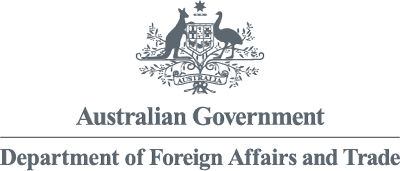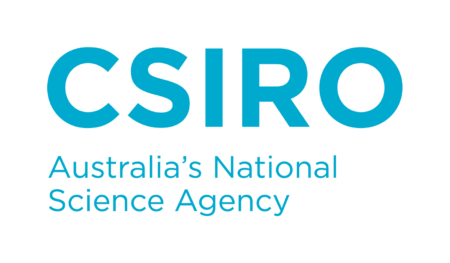Case Study: IPPIN Grants | UTS and LESS
How refill solutions are revolutionising Viet Nam’s reliance on single use plastics
To reduce reliance on single-use packaging, this project brings together partners to work with local communities in Viet Nam to develop a refill and reuse system for household and personal care products.

| Project Lead | University of Technology Sydney (UTS) |
| Project Partners | LESS UK, Vietnam National University, GreenU |
| Grant Support | $100,000 |
| Grant Amount | $100,000 |
| Trial Location | Vietnam |
| Project Duration | 12 months |
The challenge
Vietnam generates approximately 0.25 million tonnes of plastic waste annually from household and personal care products. This a major contributing factor to polluted environments with microplastics also adding to health challenges. By finding upstream solutions, this project works with local communities to replace single use packaging to create accessible low-cost refill and reuse solutions.
The innovation
This pilot in Viet Nam provides a low-cost, scalable refill and reuse system tailored to the needs of low- and middle-income consumers—an often-overlooked majority in the reuse market landscape.
After involvement with IPPIN and through an IPPIN Grant, this transdisciplinary team have been able to conduct research, design and test viable go-to-market models for reusable packaging in Vietnam. Drawing on successful pilot experience from India, the team tested the commercial and environmental viability of refill solutions, yielding positive findings.
By closing the gap between innovative reuse models and affordability, this project sets the stage for a systemic shift towards inclusive, scalable, and economically viable circular solutions in Viet Nam and beyond.
Key learnings

Identifying consumer and behavioural issues are critical challenges in reuse alternatives and often seen as barriers to launching, testing and implementing refill-reuse models, particularly in low- and middle-income settings.
This grant enabled direct collaboration with grassroots organisations like the Da Cuong Women’s Union and the NEU Green Generation Club, who have been instrumental in championing refill models. Partnerships, in part facilitated through IPPIN, have strengthened the project’s local relevance and reach created enduring relationships to underpin future scale-up implementation.
Participating in IPPIN Programs has equipped this initiative to:
- Improve TRL: To move from concept to a validated proof-of-concept, advancing to a higher TRL. Since joining IPPIN, they now have real-world user feedback and demonstrated environmental and social outcomes, making the model more investment and partnership ready.
- Improve investment and scale-up readiness: This project has gained practical experience in defining cost structures, identifying key adoption drivers, like affordability and convenience, and developing a replicable model. This positions them to better engage impact investors, CSR-aligned corporates and development partners, including mass-market brands, interested in circular economy solutions.
- Expand partnerships: IPPIN provided visibility and credibility that helped this project form partnerships with local brands (e.g., Fuwa3e, Thi Thao), institutions (e.g., NEU), and community networks (e.g., Women’s Union). These relationships are critical foundational for growing through localised distribution, co-branding or joint campaigns in future phases.
Embracing Gender, Equality, and Social Inclusion

Gender, Equality, and Social Inclusion (GEDSI) is a key principle embedded at all stages of this project. Starting with the composition of team members and project partners, including gender representation, cultural and national diversity, as well as age, experience and skillsets.
Location and affordability ensured this refill model was accessible to all members of the community. The partnership with Da Cuong Women’s Union played a critical role in ensuring GEDSI was locally led. By involving women as local leaders and operators, this built trust and increased participation and created micro-opportunities for leadership, income generation, and environmental advocacy.
Embedding GEDSI principles into the refill project further increases uptake of this new system, integral to the success of lasting circularity initiatives.
Making an impact with IPPIN Support

The IPPIN grant meant the ream were able to activate local knowledge and networks to translate research design into a feasible, locally appropriate refill model that can be enhanced, replicated and scaled. The learnings, consumer and retailer feedback emerging from the IPPIN grant are now informing the next phase to build refill solutions into other jurisdictions and contexts across Viet Nam.
Environment impact
Through the refill pilot, a total of 200 litres of household and personal care products were sold—120 litres through the village model and 80 litres through the university model. This direct sales volume translates into an estimated 400 single-use plastic bottles (500ml) being diverted from landfill for reuse. Additionally, the household and personal care products supplied through the pilots were bio-based for low chemical use and impact. By promoting reuse over single use packaging for household products, the project delivered on the intended outcomes of reducing demand for pre-packaged products and by encouraging consumers to bring their own bottles or to borrow cleaned PET bottles made available at the refill stations.
Social impact
The project successfully engaged nearly 300 individuals through direct participation in community workshops, student-led initiatives, and public talk shows across both pilot sites. These interactive activities played a vital role in raising awareness, influencing consumer behaviour, and empowering key groups—particularly students and rural women—to embrace sustainable consumption practices.
Beyond in-person engagement, the project also achieved significant digital outreach. A series of 16 curated posts and a video featuring a Key Opinion Leader (KOL) were published on a youth-led Facebook fan page, generating over 20,000 impressions. This helped amplify the project’s visibility and foster broader public awareness of refill solutions and plastic waste reduction. Importantly, the project also succeeded in mobilising two eco-friendly product businesses, which actively supported and sponsored the pilot implementation. Their involvement reflects a growing interest and commitment from the private sector to contribute to upstream packaging waste reduction and the development of circular economy models.
Next steps and opportunities

By demonstrating the feasibility of refill-reuse models in diverse settings, the project offers practical examples of how upstream waste reduction can complement national plastic reduction goals. Specifically, the pilot aligns with Viet Nam’s National Action Plan on Ocean Plastic Waste and supports the government’s broader agenda on reducing single-use plastics.
The data, insights and lessons gathered through this IPPIN-funded project can now inform future policymaking, particularly in shaping guidelines or incentives for reuse infrastructure, and local business engagement in circular solutions.
Moving forward, these results position the project as a credible case study for regulators seeking scalable, inclusive models for sustainable consumption.
Further information
For partnership or investment enquiries, contact the IPPIN team:


